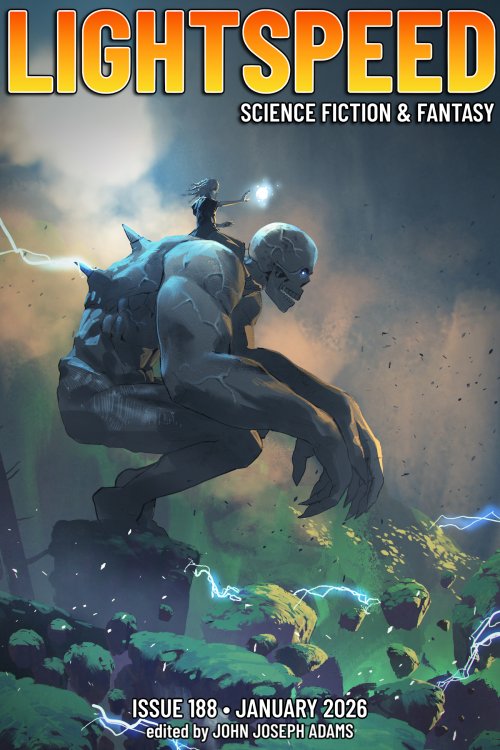My son tells me that there’s a man in the house, someone he hears well after the lights are out, in the narrower halls or maybe at the far side of the den—a gait and creak he’s certain isn’t me or his mom, since he can hear us both breathing heavily and tossing in our sleep.
On sweltering afternoons, when the house is baking and the walls are crackling, my son says he sees him standing in some dim, dust-swarmed part of the house, looking out with the littlest curl at the corners of his lips, before the boy turns and screams for one of us.
But there isn’t anything to be frightened of, I tell the kid, as I brush the hair from his forehead and adjust his blankets before kissing him goodnight. Even though, as I look down at the crack between his bed and the wall, I see a long-fingered hand resting on the floor.
I wasn’t much older when it started, the day I was picking through the closet and touched fingers too spindly to be what they were, stretching from the end of a sinewy forearm. Then I saw the tangle of hair peeking out from one of the higher shelves. And when I was the one running and crying to my old man, I’ll never forget his expression, like someone went and just crushed something inside of him.
Like I’m pretty sure I must look now.
I suppose I could tell my son what my dad told me then, after he’d sat with me for a bit. How he didn’t know why, and whether it was something our family did wrong—in lost and forgotten days, when men birthed creations with blood instead of words. Or whether it was something inside us, like an unnatural weakness that could never be bred away or bottled up or buried down deep. But whatever the reason, this thing would follow each of us, always, for the rest of our lives.
You could move to different places, he said, try your best to run—even stand on the lawn and watch tongues of fire grow and swallow the family house you built with your own hands. But that leering man, or something that tried its best to look like one, would find you in the next place you dared to call home, in a moment when you’d be praying for relief and, instead, just felt it in the room with you, still.
Or maybe you’d turn to knowledge, my dad suggested—try to learn the nature of this thing from books, or from the older families who still remember horrors that have long since shed names and can recall the fragments of sigils that might protect you for a time. Find yourself in all kinds of attics, abandoned book depots, or the sterile silence of private collections, flipping through pages and renderings and wondering if you’d found glimmers of the man, long fingers hanging in shadow in the background of roughly sketched portraits or the corners of old photographs, never quite sure if it’s truly the same thing you see or a vague echo. Maybe a different man entirely who’d been visiting other fathers and sons. Not the one you feel behind you, approaching steadily, with footfalls growing heavier and an occasional touch, so slight and so soft on your shoulder, to make sure you’ll never forget it’s there.
But in the end, my father said, you’ll realize what everyone before you at some point realized: there is no fix. You can’t stop it or hurt it or ever get away from it, not in any way that matters. Only learn to live alongside it. Just keep doing what you’re doing and don’t ever give it the time of day. Don’t ever do that, he said, because it’ll only get worse, encouraged and empowered, all the more substantiated, somehow, by the attention you give it.
Then you’ll end up like his father, who wandered around yelling to everyone about it, begging them to save him from a thing they couldn’t see or understand. Until the day they found his body at the bottom of the stairs, his neck bent so sharply that it couldn’t just be from a fall—head barely hanging from his shoulders, broken bones bulging at his purple throat like they’d been crushed by long-fingered hands, his gaping mouth, turned upward, in a peculiar kind of agony.
No. The trick was to push it from your mind entirely, my father was certain, like you’re happy and unaware. That had to be it, he said, with the kind of confidence and fear I would only understand when I became a father myself.
And it’ll be my time to tell my son all of this, too, whenever he’s ready.
Or maybe, whenever I am.
Ready to talk about all of the things he can do and all of the things he can’t.
All of the things we tried, each of us, and all of the things we didn’t.
But, until then, I turn my eyes away from the rustling darkness beneath his bed as I close his door behind me, and I just keep thinking about all of the things it takes to be a happy man.
Enjoyed this story? Consider supporting us via one of the following methods:








